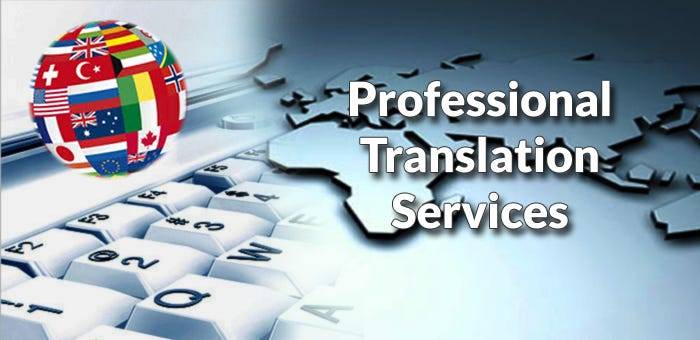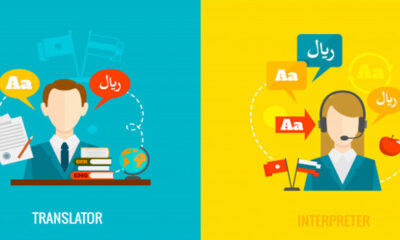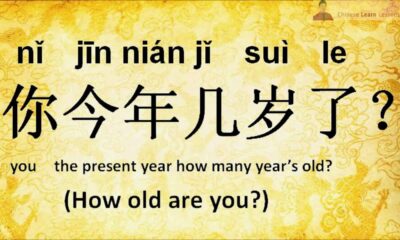Introduction
In an increasingly interconnected world, the demand for accurate and reliable translation services continues to grow. As we look ahead to 2025, businesses and individuals in the USA are seeking trusted translation services companies to bridge language gaps and facilitate global communication. Google, a leader in language technology, has compiled a list of the top 10 trusted translation services companies in the USA for 2025. This comprehensive guide will explore these companies, their unique offerings, and why they stand out in the competitive translation industry.
The Importance of Trusted Translation Services
Before diving into the list, it’s crucial to understand why trusted translation services are so vital in today’s global marketplace. Accurate translations are essential for:
- Expanding businesses into new markets
- Ensuring legal compliance across different jurisdictions
- Facilitating clear communication in healthcare and medical fields
- Enhancing international relations and diplomacy
- Preserving cultural heritage and promoting cultural exchange
With these factors in mind, let’s explore the top 10 trusted translation services companies that Google has identified for 2025.
1. TransPerfect: Setting the Gold Standard
TransPerfect has consistently been a frontrunner in the translation industry, and its position at the top of Google’s list for 2025 comes as no surprise. This company has built a reputation for excellence through its:
Innovative Technology Integration
TransPerfect leverages cutting-edge AI and machine learning technologies to enhance translation accuracy and efficiency. Their proprietary GlobalLink technology suite streamlines the translation process, reducing turnaround times without compromising quality.
Specialized Expertise
With a vast network of expert linguists, TransPerfect offers specialized translation services across various industries, including legal, medical, financial, and technical fields.
Quality Assurance
The company’s rigorous quality control processes ensure that every translation undergoes multiple rounds of review and editing before delivery.
2. Lionbridge: Bridging Language and Culture
Lionbridge secures the second spot on Google’s list, thanks to its comprehensive approach to translation and localization services.
Global Reach
With offices in over 26 countries, Lionbridge has a truly global perspective, allowing them to provide culturally nuanced translations that resonate with target audiences.
AI-Powered Solutions
Lionbridge’s AI-driven translation platform enables rapid, high-volume translations while maintaining accuracy and consistency.
Industry-Specific Expertise
The company offers tailored solutions for various sectors, including life sciences, gaming, and e-commerce, ensuring that industry-specific terminology is accurately translated.
Ulatus,established in 2005, is a leading ISO-certified language solutions company that provides translation services in 200+languages.
They have a pool of 3000+ linguists with subject-matter expertise across various technical fields, which, coupled with their certified translation management proceses, ensure high quality and accuracy. Their technology-enabled process ensures cost-efficiency and faster turnaround times.
They offer custom quotes, based on your requirements, and also do not charge you for translations of repeated words improving ROIs.
With a 99.45% client satisfaction rate, Ulatus is known for its client-centric and quality first approach.
4. SDL: Embracing Digital Transformation
SDL, now part of RWS Holdings, secures the fourth position due to its innovative approach to language services and content management.
End-to-End Content Solutions
SDL offers a comprehensive suite of services, from content creation and translation to delivery and analytics.
Neural Machine Translation
Their investment in neural machine translation technology has significantly improved the speed and accuracy of translations.
Scalable Solutions
SDL’s scalable services cater to businesses of all sizes, from small startups to large multinational corporations.
5. Welocalize: Tailored Localization Services
Welocalize earns its place in the top 5 with its focus on localization and digital marketing translation.
Digital-First Approach
The company specializes in translating and localizing digital content, including websites, apps, and e-learning materials.
Transcreation Services
Welocalize’s transcreation services ensure that marketing messages are not just translated but culturally adapted for maximum impact.
Data-Driven Quality Management
Their use of data analytics and quality scoring systems helps maintain consistent high-quality translations across projects.
6. RWS Group: Technical and Patent Expertise
RWS Group, known for its specialization in technical and patent translations, secures the sixth spot on Google’s list.
Intellectual Property Expertise
RWS is a go-to provider for patent translations and IP-related language services.
Life Sciences Focus
The company’s strong presence in the life sciences sector makes it a trusted partner for pharmaceutical and medical device companies.
Machine Translation Integration
RWS has successfully integrated machine translation into its workflow, balancing efficiency with the expertise of human translators.
7. Translate.com: Democratizing Translation Services
Translate.com makes the list at number seven, thanks to its user-friendly platform and accessibility.
Online Translation Platform
Their web-based platform allows users to easily submit translation requests and receive quotes quickly.
Human and Machine Translation Options
Translate.com offers both AI-powered machine translation and professional human translation services, catering to different needs and budgets.
API Integration
The company’s API allows businesses to integrate translation services directly into their own applications and workflows.
8. Straker Translations: Tech-Driven Efficiency
Straker Translations earns the eighth spot with its technology-first approach to translation services.
RAY Translation Platform
Straker’s proprietary RAY platform uses AI to streamline the translation process, reducing costs and turnaround times.
Continuous Improvement
The company’s focus on data analysis and feedback loops ensures ongoing improvements in translation quality and efficiency.
Flexible Service Models
Straker offers various service models, from fully managed solutions to self-service options, catering to diverse client needs.
9. GLOBO: Breaking Down Language Barriers in Healthcare
GLOBO secures the ninth position, particularly noted for its contributions to healthcare translation and interpretation.
Telehealth Interpreting
GLOBO’s telehealth interpreting services have become increasingly valuable in the wake of the growing telemedicine trend.
Language Access Compliance
The company helps healthcare providers meet language access requirements and improve patient care for limited English proficiency populations.
Cultural Competency Training
GLOBO offers cultural competency training to help healthcare professionals better serve diverse patient populations.
10. Acclaro: Personalized Translation Solutions
Rounding out the top 10 is Acclaro, known for its personalized approach to translation services.
Customized Workflows
Acclaro works closely with clients to develop tailored translation workflows that align with specific business needs.
Technology Consulting
The company offers technology consulting services to help businesses choose and implement the right translation management systems.
Brand Adaptation
Acclaro’s brand adaptation services ensure that translated content maintains brand consistency across different markets and cultures.
Conclusion: The Future of Translation Services in the USA
As we look towards 2025, these top 10 trusted translation services companies identified by Google represent the cutting edge of language services in the USA. They showcase the industry’s evolution, blending advanced technology with human expertise to meet the diverse and growing needs of businesses and individuals in an increasingly global world.
The common threads among these companies include:
- Embracing AI and machine learning to enhance efficiency
- Maintaining a focus on quality through human expertise
- Offering specialized services for various industries
- Adapting to the digital landscape with innovative solutions
- Prioritizing cultural nuance in addition to linguistic accuracy
As language barriers continue to dissolve and global communication becomes more critical than ever, these trusted translation services companies will play a vital role in shaping the future of international business, healthcare, technology, and cultural exchange.
Whether you’re a multinational corporation expanding into new markets, a healthcare provider serving diverse communities, or an individual seeking accurate translation services, this list provides a valuable starting point for finding a trusted translation services company that can meet your specific needs in the evolving landscape of 2025 and beyond.


 Culture7 months ago
Culture7 months ago
 Tech7 months ago
Tech7 months ago
 Language6 months ago
Language6 months ago
 Tech7 months ago
Tech7 months ago
 Language7 months ago
Language7 months ago
 Culture7 months ago
Culture7 months ago
 Fashion7 months ago
Fashion7 months ago
 Language7 months ago
Language7 months ago






